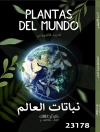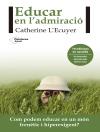Now in a revised and expanded third edition, this important resource helps teachers understand how good readers comprehend text and how best to support students who are struggling . It presents effective instructional methods for learners at all grade levels, including those with reading disabilities. Every chapter translates state-of-the-art research into practical classroom applications. All facets of comprehension are addressed, including assessment, vocabulary, background knowledge, and text structure. Chapters also cover English learners, intensive intervention, and content literacy. Utility as a teacher guide and course text is enhanced by sample lesson plans, graphic organizers, and chapter-opening study questions.
New to This Edition
*Chapter on text selection and text structure.
*Chapter on teachers’ frequently asked questions, providing specific, actionable advice.
*More than twice as many sample lesson plans.
*Revised throughout with the latest research and teaching techniques.
Содержание
1. Overview of Reading Comprehension
2. Assessing Reading Comprehension
3. Vocabulary Instruction
4. Instructional Practices That Promote Reading Comprehension
5. Effectively Using Text to Promote Reading Comprehension
6. Promoting Content-Area Literacy
7. Supporting English Learners with Learning Difficulties
8. Intensive Interventions for Students with Significant Reading Comprehension Difficulties
9. Multicomponent Approaches to Strategy Instruction
10. Questions Teachers Ask About Teaching Reading Comprehension
Appendix: Lesson Plans
Glossary
References
Index
Об авторе
Sharon Vaughn, Ph D, holds the Manuel Justiz Chair in Education at the University of Texas at Austin and is Executive Director of the Meadows Center for Preventing Educational Risk. She has written numerous books and research articles that address the reading and social outcomes of students with learning difficulties, and is currently investigating effective interventions for students with reading difficulties and students who are English learners. Dr. Vaughn has served as Editor-in-Chief of the Journal of Learning Disabilities and coeditor of Learning Disabilities Research and Practice. She has received the Special Education Research Award from the Council for Exceptional Children, the Distinguished Researcher Award from the Special Education Research Special Interest Group of the American Educational Research Association, the Career Excellence Award from the University of Texas, and the Albert J. Harris Award from the International Literacy Association.
Alison Boardman, Ph D, is Associate Professor in Equity, Bilingualism, and Biliteracy and Codirector of Elementary Teacher Education in the School of Education at the University of Colorado Boulder. She works closely with educators to study and innovate literacy instruction across content areas in classrooms that include students with learning difficulties and multilingual learners. Current investigations focus on designing and studying the use of literacy-focused project-based learning with students with learning difficulties in inclusive classrooms. Dr. Boardman is a former elementary and middle school special education teacher.
Janette K. Klingner, Ph D, until her death in 2014, was Professor of Bilingual Special Education at the University of Colorado Boulder. Her principal areas of research were reading comprehension strategy instruction in diverse, inclusive secondary science and social studies classes; professional development that enhances teacher quality in diverse, inclusive classrooms; response to intervention for English learners; and the disproportionate representation of students of color in special education. She authored or coauthored more than 130 articles, books, and book chapters. Dr. Klingner was past president of the Division of Learning Disabilities of the Council for Exceptional Children, Vice President of the International Academy for Research on Learning Disabilities, and Associate Editor of the Journal of Learning Disabilities. She was a recipient of the Early Career Award from the American Educational Research Association (AERA) and the Distinguished Researcher Award from the Special Education Research Special Interest Group of AERA.












